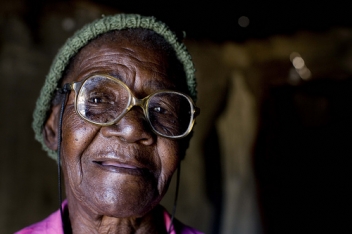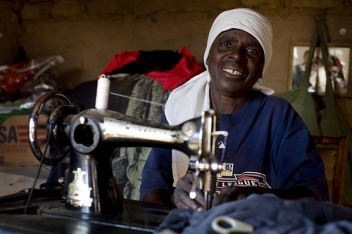 As we celebrate International Women’s Day on 8 March, the Commission on the Status of Women is meeting in New York to review how the Beijing Declaration and Platform for Action has been implemented by governments 15 years after it was adopted.
As we celebrate International Women’s Day on 8 March, the Commission on the Status of Women is meeting in New York to review how the Beijing Declaration and Platform for Action has been implemented by governments 15 years after it was adopted.
I wasn’t working in this area 15 years ago and so was only vaguely aware of the 1995 document and its contents. So when I read it from start to finish for the first time last year, I wanted to stand up and cheer!
Having watched geo-politics being played out more recently between member states in other UN meetings, how could they all have agreed to something so progressive?
15 years on, are older women’s lives better?
Certainly, references to older women and recommended actions could be stronger but they are there, which is the important thing. They are there in relation to poverty, health, violence against them, obstacles they face entering the labour market, discrimination at work and as a civilian group particularly affected by armed conflict. Population ageing is recognised as is the need for data disaggregated by age and sex.
You would need to do a comprehensive research study to be able to answer those questions with any certainty. Unfortunately I haven’t been able to do this but what I did do was look at government responses to a questionnaire sent out by the UN for this 15 year review. What I was looking for was information on how governments were implementing the actions targeted at older women.
121 questionnaire responses later, there was very little cheering from my corner of the office. Attention to older women was inconsistent and patchy at best.
 More data is desperately needed
More data is desperately needed
What struck me most was the lack of data disaggregated by age and sex. Only two countries recognised that this was an issue and just one made a commitment to collect it.
Lack of data is a constant frustration. Without it, how can you design the right programmes or policies? How can you identify the scale or depth of a problem and advocate for change? How can you know if you are allocating enough or too many resources to any particular issue?
Perhaps lack of data also explains why only four countries mentioned violence against older women. When data stops at 49, violence experienced by women 50 years or older remains invisible.
There was a general recognition that women are more at risk of poverty in old age than men, but once again, only five countries provided poverty data disaggregated by age and sex and two by age.
But perhaps most disturbingly, at a time when populations have already aged considerably in some countries and are ageing rapidly in others, only six responses out of the 121 recognised ageing and its impact on women as a future priority.
This recognition is absolutely imperative if policies, including those on health, employment, social security, prevention of violence and climate change are to be adapted so that they realise the rights of everyone, including older women.
Read more about HelpAge’s work on rights for older women.
